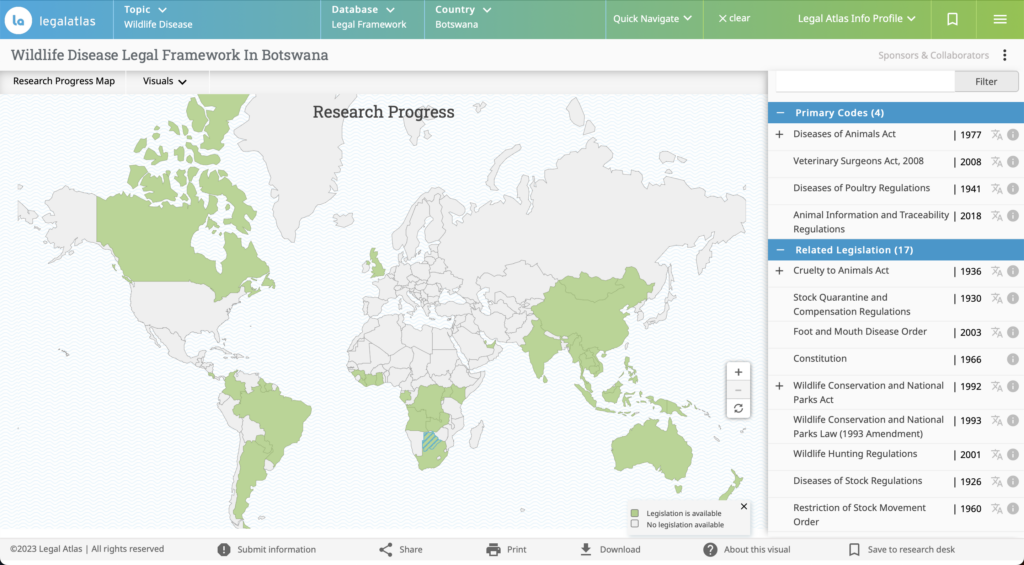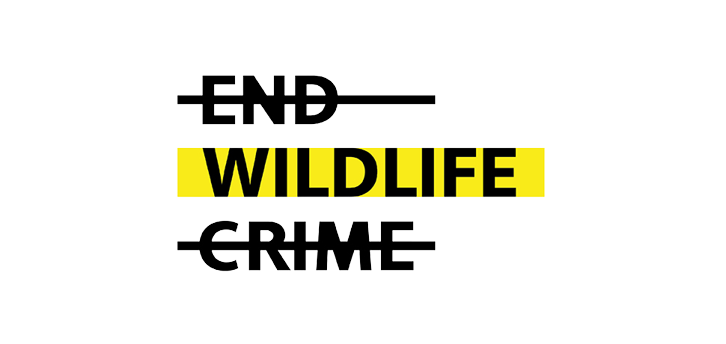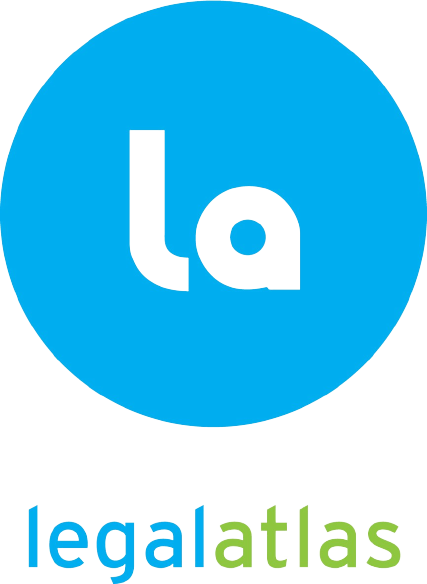Preventing Future Zoonotic Pandemics: Strengthening National Legal Frameworks and International Cooperation

The central-southern part of Africa is a is a hotspot for illegal wildlife trade including forest elephant ivory and pangolin scales. This is where the three target countries of this project, Angola, Botswana and Zambia, are located.
The overarching goal of the project was to establish a model for legislative improvement in the field of zoonotic disease prevention and control. By the end of the project, target jurisdictions have additional knowledge tools (e.g., legal best practices, fact sheets, legislative agendas, etc.) at their disposal to independently draft or amend legislation and better control the emergence of zoonotic diseases.
To have the maximum impact, the project focused on three neighbouring states in the Kavango Zambezi Transfrontier Conservation Area (KAZA TFCA), the largest trans frontier conservation area in the world. Legal development in this key area is expected to have significant regional impact, serving as a model for other African jurisdictions.
The scalable regulatory standards developed during the project are also expected to be closely analysed and potentially adopted in other jurisdictions worldwide. Existing laws in the countries were analysed and potential gaps identified.
Main Results:
There are shortcomings in many national legal frameworks regarding risk of zoonotic diseases. Wildlife health and its impact on humans is mostly not mentioned and legal regulations specifically directed at animal health, do not extend to all wildlife in two of the three countries. The coordination between different stakeholders of national and international levels was deficient as well as the provision of concrete implementation tools.
Main Products:
- National laws that, directly or indirectly, address zoonotic diseases and wildlife trade were identified and formulated into three sets of legal frameworks across three countries.The reports consist of:
- Legislative Benchmarking Report Assessing Entity Needs to Manage Zoonotic Disease Risks in Wildlife Trade – serves as a foundation for an understanding of the approach to zoonotic disease prevention at various levels, i.e., national, regional, or global. It therefore serves as a fundamental precursor to legal best practices, establishing the groundwork for their identification.
- International Legal Best Practices: Terrestrial Wildlife Disease and Trade – provides a tool for assessing national legislation that directly or indirectly governs wildlife trade, and in particular, its ability to prevent, prepare for, and respond to zoonotic diseases emerging from wildlife.
- Legal Gap Analysis on Wildlife Disease in Terrestrial Fauna – reports for Angola, Botswana, and Zambia, that assess the relevant legal frameworks in each jurisdiction to manage and control wildlife diseases, and outline identified gaps in the national legislation that need to be addressed to strengthen the legal responses to managing zoonotic disease in the context of wildlife trade.
- Find more information on their website: NEW REPORTS ON ZOONOTIC DISEASE PREVENTION – End Wildlife Crime

©2023 Legal Atlas | All rights reserved
Find more information and the overall learnings of the Alliance financed projects in the report “Learning to make Change Happen.- Global Lessons from 18 projects” and check out Legal Atlas, ICCF, and End Wildlife Crime
Participants

Alice Pasqualato

James Wingard
Position: Legal Director Country: Spain Fields of action: Advocacy, Illegal Wildlife Trade, Law & Regulation

